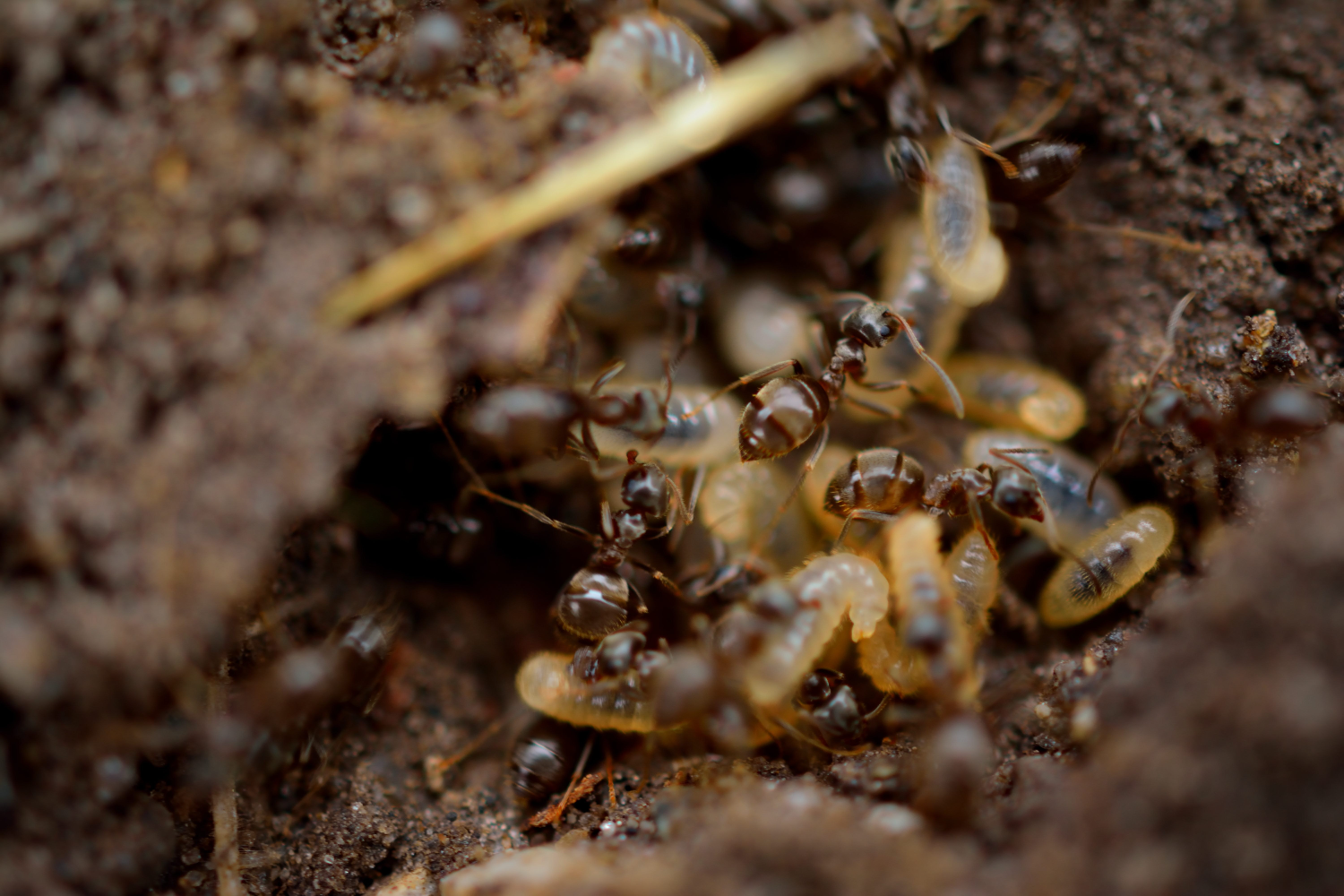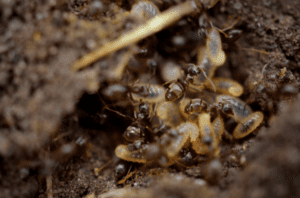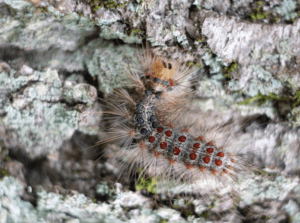
It’s estimated that 1 in 5 homes in New Jersey will be invaded by termites. These cellulose-loving insects can cause widespread structural damage to your home which can be very costly to repair. In fact, termite infestations cost homeowners millions every year, and often, insurance refuses to pay out as the damage is deemed “preventable”.
For this reason, it is important to detect a termite infestation early and deal with the problem quickly and efficiently. As they say, prevention is better than cure, and in the case of termites this is certainly true.
This guide will help you to spot the signs of a termite infestation before they gnaw their way through your house and make a dent in your bank account.
Signs Of Termites In Your House
Swarmers
Swarmers, or flying termites, are usually the first sign of termite activity. In their search for a mate to start a new colony they can be seen flying around your home or garden looking for a place to build a nest. They are often seen when it rains and can be distinguished from flying ants with their uniformly sized wings.
Swarming usually happens around spring but it does occur in summer as well. An early morning rain shower in temperatures about 70°F is often followed by swarming.
Swarmers are also called alates and they can be identified by their poor flying as they get swept along by the wind. They also have eyes (at this stage of their life cycle) and drop their wings to seek out a mate.
Once they mate, flying termites’ wings fall off and they are easy to spot as they are small and look like fish scales.
Termite Tubes
Muddy-looking tubes that termites build in cracks and gaps in your home’s foundation are also easy to spot. Termites build these tubes to connect their underground colony with their food source in your home.
Don’t think the worst if you see them, as they could be old and unused. Remove a small part and watch to see if the hole is repaired. That’s a sign that termites are active. If it remains unrepaired, then it is a discarded tube.
Check your basement and crawl spaces for any signs of termite activity too, as they get in everywhere.
Inspection Tip: Check Your Trees
Inspecting the trees on your property will enable you to pick up any termite problems. Tap any bits of wood that don’t “look right”. If you hear a hollow sound, this very well could be a sign of a termite infestation. Once you’ve confirmed the infestation, consider calling a pest control company to assist you.
Termite activity can be difficult to detect as they are tiny and live underground. If you find signs of an infestation, it is vital to call in expert pest control services. Once eradicated, pest control companies like Twin-Boro can assist by setting up a regular maintenance schedule, giving you long-term peace of mind.
Inspection Tip: Check Swollen Windows Or Doors
As termites leave moisture in the wake of them eating through wood, this often causes the wood in windows and doors to swell, making them hard to open and close. This can be a sure sign of termite activity.
Check for signs of peeling paint, crumbly wood, small holes in drywalls and termite droppings which resemble salt and pepper.
Termites in New Jersey
Termites are very prevalent in the state of New Jersey and one species is particularly destructive and worth knowing about ̶ the Eastern Subterranean Termite.
These critters can munch their way through 1 foot of 2x4 structural timber in about 4 months. Besides feeding voraciously on wood, the Eastern Subterranean Termite can be quite difficult to detect as they are tiny. They’re about the size of a grain of rice with soft white bodies. They also lack wings, so you won’t notice any discarded wings lying around.
New Jersey is categorized as a moderate to heavy termite infestation area, so homeowners need to be vigilant. This means that termite control measures are vitally important in the state.
Pest control services usually control termites with bait stations and liquid barriers around the perimeter of your home. With bait stations, the termites actively eat the bait and carry it back to their colonies. If baited correctly, this control measure can result in the death of the entire colony.
However, inexpert disturbance of a termite colony can also result in a relocation rendering the extermination unsuccessful and can lead to the spread of colonies and further infestation. Furthermore, the application of external liquid barriers is very demanding. If there is even a minuscule break in the barrier, termites will get through and carry on causing extensive damage.
If you have identified a termite infestation in your home, you need to act fast. Get in touch with Twin-Boro. Our pest control experts will help you to get rid of these pesky little creatures that can otherwise cause untold damage in your home.






